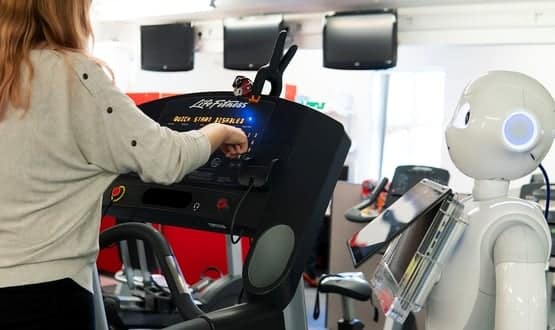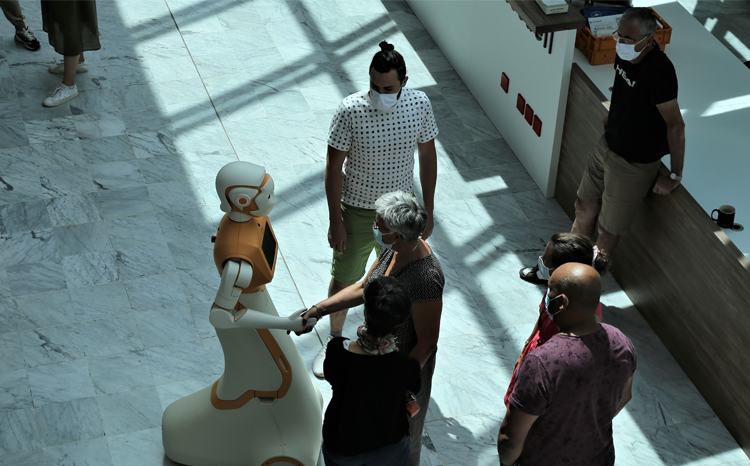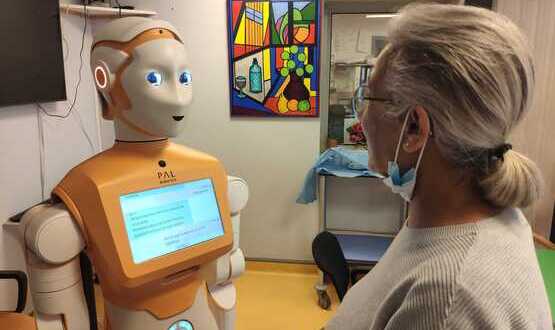‘Socially intelligent’ robot fitness coach developed by researchers in Bristol

The world’s first “socially intelligent” robot fitness coach has been developed by researchers at Bristol Robotics Laboratory (BRL).
The robot companion can give motivational voice prompts and make physical gestures to guide people through an exercise regime on a treadmill.
Support from Pepper the robot is personalised based on the runner’s heart rate, speed, personality type, mood and fitness level. Pepper can also tell jokes, show sympathy, lean in towards the runner and even change its eye colour to express different emotions.
The robot was developed as part of a study led by human-robot interaction experts Katie Winkle and Séverin Lemaignan, in collaboration with roboticists Paul Bremner and Praminda Caleb-Solly, psychologist Ute Leonards and rehabilitation expert Ailie Turton.
Over the course of three months, 10 people participated in sessions with the robot three times a week in a gym at the University of the West of England (UWE Bristol).
Pepper guided them through the NHS Couch to 5k programme, designed to help beginners build up to completing a distance of 5km.
Winkle said: “We wanted to test if we could transfer the intelligence of our fitness instructor, an expert with the know-how to get the best out of clients, into a robot so it could become an effective personal coach.
“We aimed to create an engaging motivational companion to get our runners through Couch to 5k, which is quite a long and drawn out exercise programme.”
Participants received guidance from two different versions of the robot. The first was pre-programmed and gave standard instructions every 30 seconds based on the runner’s performance.
The second was a bespoke form of the robot that had benefited from expert input from a UWE Bristol fitness instructor.
Results showed runners preferred engaging with the socially intelligent ‘human-like’ robot, and performed better with this type of companion.
Lemaignan, a senior research fellow at the BRL, added: “Our work shows a robot could be really useful in the gym, especially for people who would perhaps feel embarrassed with a human personal trainer.”





1 Comments
Having interacted with that brand of robot in numerous settings, I’ve never once found it to be conducive to a compelling human interaction.
Comments are closed.